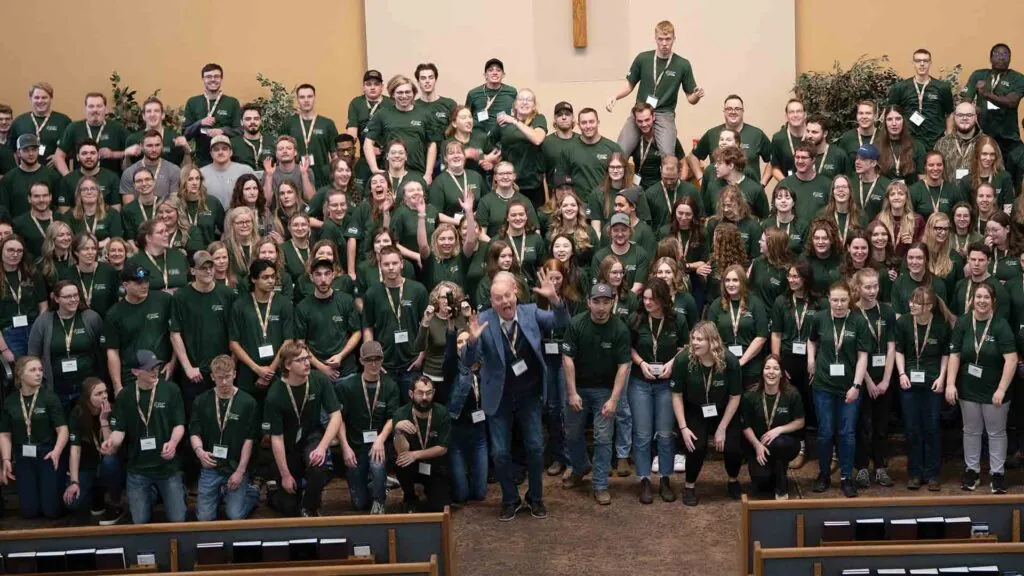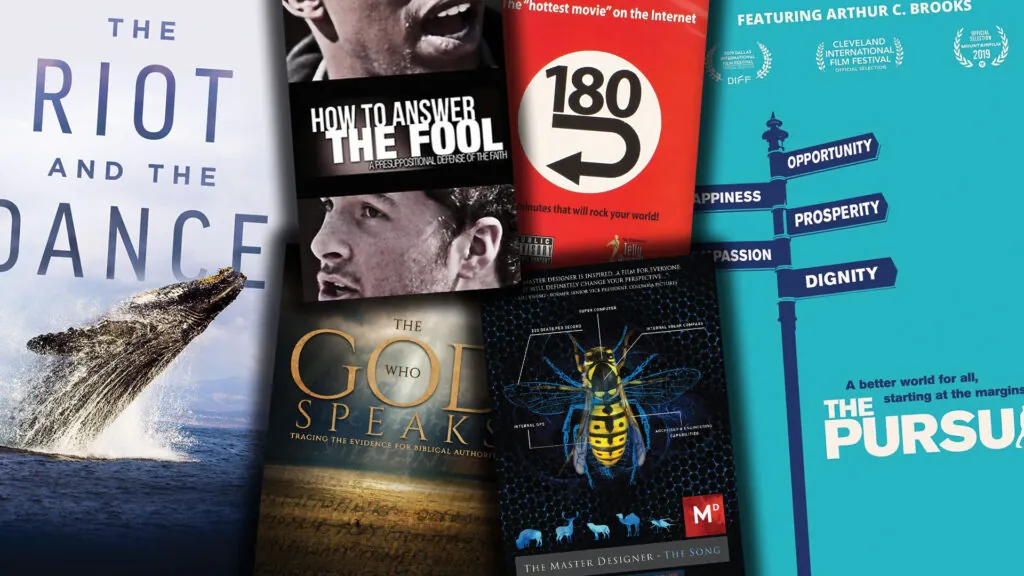Learning
“It was good for me to be afflicted so that I might learn your decrees.” – Psalm 119:71
Is it possible that something bad can be good for you? Can it be that God purposes adversity for our benefit? Perhaps it is only after the fact that we see the Almighty’s intent. Perhaps it is only later that we recognize blessings.
***
The boy’s teddy bear was a friendly yellow-brown. It was not yellow like a dandelion, nor brown like a garden snail, but yellow-brown like straw. The pads on the bear’s feet and hands were blue – the kind of blue that the feathers of an indigo bunting display. The bear’s eyes were two, small beads. His brown irises glistened and blinked like black maple bark after a rainfall. The teddy’s nose had been sewn onto his face to resemble an inky cross. And below the nose, his solemn mouth was merely an ebony line. But the mouth was inconsequential. It was unimportant. It was unimportant because the bear never talked. He only listened.
And there were many things the boy told him. The boy, whose name was Joseph John, was very fond of his teddy. He did not openly share this affection for the teddy bear with anyone. But his siblings knew, and so did his father.
Joseph John was the youngest of six. His two older brothers did not live at home any longer. Harvey, the firstborn, had been hired by a farmer in a neighboring district and boarded with that family. William, the second oldest, was apprenticed to a local apothecary in a nearby town. Although both the boys often came home on weekends, they were more like uncles than brothers. In age, they were many years ahead of Joseph John.
His three sisters were all married and only dropped in on birthdays and holidays. Jane, Joanne, and Mary, all endowed with solid names and strong maternal instincts, loved their younger brother but had their own families now.
“Your birth was a total surprise to Mother and Father,” Jane once told him during one of her visits as he sat on her lap.
“I like surprises,” Joseph John had rejoined and had not understood why his sister had laughed and hugged him.
***
Michael Phillips, Joseph John’s Father, was a rather solid man in his late forties. Robust-looking and chipper, he liked to think of himself as well-conditioned. His piercing blue eyes usually twinkled as he regarded people over the top of his golden-rimmed spectacles. If someone suggested adiposity, he had been heard to speak candidly: “I’m able-bodied not stout. Stoutness betokens laziness and no one can ever accuse me of being lazy.”
It was true. Michael Phillips was as active a person as you could find anywhere in town. Principal of the local school in Rainsville, Ontario, there was not one child or adult living in that little burg who did not know or respect Mr. Phillips’ vigorous attitude and lifestyle. If he said you should do something, you automatically did it; and if he said you should not do something, then you absolutely did not do it.
Mr. Phillips taught the higher grades in school. Miss MacKechnie, a new teacher and a thirty plus something spinster, taught grades three and four, while Miss Potts, a pretty young woman fresh out of college, had the grade one and two students under her wing.
There was another aspect of Michael Phillips which did not manifest itself that often, but which trait was embedded firmly in his ample figure. That trait was jocosity – a sense of humor which came to the fore when something suddenly struck him as farcical or ludicrous.
***
“You are older now,” Michael Phillips informed Joseph John, as the boy walked next to him.
They were on their way to school on one of the first Wednesday mornings of the autumn.
“I think,” Michael continued slowly and placidly, “that being that you are older now and attending school, you ought to get rid of your teddy bear.”
It was raining. The sound of the droplets spattered comfortably on the rounded top of the black umbrella held up over Michael Phillips’ head. Next to him, Joseph John half-walked under it as well. His father’s sturdy frame, however, easily overlapped the middle section of the umbrella and, consequently, denied the boy protection for his right side. Joseph John considered the possibility for a moment that he had been divided into two boys – a dry one and a wet one. But he knew that this was not possible.
“Perhaps,” his father went on, even as he navigated over a puddle, “perhaps we might get you a bicycle.”
Joseph John looked up in astonishment at his father. Taking his eyes off the road for a moment, he promptly stepped into that puddle. Now he had both a wet left side and a right wet foot. “A bicycle?” he repeated somewhat slowly.
“Yes,” his father’s voice was strong, as strong as the gust of wind that suddenly pulled at the umbrella. “The truth is,” his father went on, placing both his hands on the umbrella shaft to hold it straight, “that William is getting rid of his bicycle. The pharmacist is giving him a new one and William is kindly thinking that you might like to have his old one.”
“Oh.” Joseph John’s answer was almost lost in the brief wind bluster.
There were many things to consider. For one thing, he knew as sure as raindrops were wet, that once his father made up his mind about something, there was not much you could do to change it. Another thing was that he did not really want William’s old bicycle and neither did he want to get rid of his straw-colored teddy.
“Well,” his father’s voice bellowed above him, “that’s settled then. You’re almost six years old now and growing up quite sensibly. Your Mother would be proud of you, Joseph John.”
Joseph John thought of the black and white photo on the dresser in the living room. Mother had sewn teddy and wouldn’t it be a little like getting rid of Mother if he got rid of his teddy? Mother had never said much, but she, like teddy, had listened to everything he said.
“You’re not saying much, son,” Michael Phillips commented, even as he strode along, “But I’m glad this problem’s been cleared up. I expect you’ll want to throw that bear out with the trash. I’ll burn it tonight.”
These last words left Joseph John aghast. He rarely concluded anything quickly, but rather tossed an idea over and over in his mind before deciding upon it. Glancing at his father’s hands gripping the handle of the umbrella, he remembered his mother’s hands – small and fine hands they had been. They were not like his sisters’ hands. Their hands were raw-boned and reddish. No, mother’s hands had been…. His recollections stopped.
“Oh, yes,” his father continued, “I think I neglected to tell you that I’ve invited Miss MacKechnie over for supper tonight.”
For the second time during their walk, Joseph John looked up at his father in amazement. Miss MacKechnie was his teacher. That is to say, she was his teacher some of the time. She taught art to the first and second graders every Tuesday. He was a little afraid of her. She rarely praised a child, but she often criticized, criticized and made fun of students. A ridiculous scene presented itself in his mind – the scene of Miss MacKechnie sitting at the kitchen table with himself and his father. It was almost more than he could conjure up. No colored chalk in her right hand, but a knife; no wooden pointer in her left hand, but a fork. And what would she do if the food did not please her?
“Why?” he asked, even as the rain kept pattering on the umbrella and as his right foot began to feel soggy and cold.
“Why?” his father repeated, as they neared the schoolyard and as the noise of children’s shouting and squabbling met them, “Because I say so.”
He stopped at the gate of the iron enclosure encompassing the playground and so spiritedly shook the umbrella that spatters flew into Joseph John’s face. Then he undid the latch and lumbered through.
Joseph John shuffled in behind his father, immediately blending in with the noisy crowd. The boy sighed. It was hard to sigh in a crowd. The small puff of it evaporated in the throng surrounding him. His right foot was thoroughly cold by now and he wondered if he could go inside before the bell rang and take off his shoe and sock. Miss Potts was nice and she might have an extra sock somewhere in her closet. She had given Miranda, who sat in front of him in class, an extra pair of mittens only yesterday. Walking towards the entrance, he contemplated what he might be able to do or say to change his father’s mind about the teddy bear. But his mind, like his right foot, seemed soggy and was not able to function properly. Swinging open the door, he began to dawdle down the long corridor heading towards his classroom. Through the corridor windows, a pool of light fell beautifully on the hall floor ahead and, consequently, he could discern that the door to his classroom was open. He could hear Miss Potts’ voice long before he reached it.
“Helen, you are devious.”
Helen was Miss MacKechnie. Joseph John knew this to be true. He halted underneath one of the wooden coat-pegs not too far from the door.
“Why shouldn’t I be? Michael is a handsome man and I’ve got such a hankering to go out with him. His wife has been gone now, let’s see, it must be upward of some two years now, and all his children are out of the house…”
She stopped. Joseph John had frozen in position, had become completely immobile.
“Aren’t you rather forgetting his youngest?” Miss Potts’ voice had turned sharp.
“That boy’s a trifling consideration. What sort of real conversation could ….” She stopped talking and left the sentence dangling.
Joseph John leaned against the wall, his heart beating rapidly. Miss MacKechnie was coming for supper. And it became clear to him, although he would not have been able to put it into words, that she intended to take Mother’s place.
Miss Potts’ voice began again. “I still think that you ought not to have supper with Michael, Helen. The man is quite a bit older than you are. At least fifteen years, I believe. You’re going there under wrong pretenses. You’re ingratiating yourself. And he actually believes that you need his help in keeping your students under control?
“He was… He was flattered, Ann. And, the truth is that I could actually stand a few pointers in that department. That’s the truth.”
“No, you are lying to him, Helen. You’re making him think you… that you need his help. And that’s just plain dishonest.”
“You’re such a goody-two-shoes, Ann. No fun to talk to at all.”
Joseph John looked down at his shoes. His right shoe was shiny with wetness. He bent over and began to undo the laces. Pressed against the wall, small and unobtrusive, Helen MacKechnie didn’t even see the child as she stormed past him back to her room.
***
Later, after school, Joseph John ran home. The first thing he did upon reaching the red, brick path leading to the backdoor, was to close his eyes and smile with relief. The house was still standing. It was still intact. Regardless of what the day had brought, the path wordlessly welcomed his feet and the white curtains with the red geraniums behind them, smiled at him. He smiled back.
“Hi, home,” he said softly.
***
Mrs. Marjorie, the part-time housekeeper, was puttering about in the kitchen. “How was your day, Joseph John?”
“Fine, Mrs. Marjorie, how was yours?”
“Fair to middling, child, fair to middling.” Having said that, she poured Joseph John some tea into a green mug and the green of the mug and the red of the tea imbued peace and security to the boy. He sat down by the kitchen table, coat hung over the back of his chair, feet dangling comfortably. This routine occurred every day and it sheltered him from the unusual, from the abnormalities of life. His hands soaked in the warmth of the mug even as his mouth carefully sipped the hot liquid. Mrs. Marjorie had been Mother’s friend and she lived only two doors down. Every day she was there when he came home from school and she stayed until six, until Father came home. Setting the table for supper, cleaning and tidying up, she could always be counted on for a hug. Mrs. Marjorie had loved Mother.
“Did you,” he began, but then stopped.
“Did I what?” she answered as she sliced him a fresh piece of bread and slathered it with butter.
“Did you ever have …?
“Have a what?” she smiled.
“Well,” he continued, “have a doll, or a … a something that you loved. You know like a toy.”
Mrs. Marjorie searched his face for a small moment before she said, “Well now, and if that isn’t a good question, Joseph John.”
Jacob John took a bite of the bread, expectantly chewing as he studied her face.
“I did have a doll. I believe it was one my mother made for me.”
“You did?”
“Yes.” Mrs. Marjorie was grinning now and continued. “And a fine doll it was. But you needn’t look so surprised, young fellow, because you see, everyone has something they treasure, something they cherish. And that’s a fact.”
“Do they?”
She nodded and sat down opposite him. “Yes, indeed, and that’s the truth.”
“My brothers?” he ventured on into the conversation.
“Well, let’s see. I believe Harvey had a little dog on wheels that he pulled around everywhere he went. It eventually broke and I don’t remember what happened to it. And William, now let me see. Oh yes, William at one point had a pet frog which he took to bed. He almost killed the poor animal because he didn’t put him back in the place where frogs belong – in the pond.”
Joseph John was fascinated. “Did Father make him get rid of it, Mrs. Marjorie?”
“I can’t recall. But eat up your bread, Joseph John. I’ve got to leave soon. Nathan is coming home early tonight and I want to be there when he arrives.” Nathan was her son. He was a traveling salesman and sometimes dropped in for a visit.
“Miss MacKechnie is coming for supper.” The sentence flew out of his mouth before Joseph John could catch it.
“I know,” Mrs. Marjorie nodded, a shadow passing across her face, “and you’ll have to be on good behavior, child, and that’s a fact.”
“Why is she coming, Mrs. Marjorie?”
“I expect she likes my cooking.” Mrs. Marjorie grinned as she spoke.
“But you won’t even be here.”
“But my food will be here and your father is right handy at heating food up.”
“Yes,” Joseph John conceded as he chewed his last bite, disappointed that Mrs. Marjorie did not seem to understand that he was not at all looking forward to Miss MacKechnie’s visit.
“Now go and feed Bobby, or your father will be cross.”
Joseph John scraped his chair back and stood up. “Can I just go up and … and take care of something?”
Mrs. Marjorie nodded and Joseph John raced out of the kitchen. He sped up the stairs to his bedroom, grabbed his teddy and hid him in the clothes closet. Then he grabbed a pillow case from the hall closet and stuffed it into his pocket. He could fill it with dirt or something else soft and bulgy and give it to his father before he went to burn the trash tonight. He wouldn’t say anything, would just give it to his father, and then disappear before questions were asked. Surely that wouldn’t be lying. Then he went downstairs again, grabbing his coat from the back of the chair as he passed through the kitchen, and went out to feed the dog.
***
It was Joseph John’s job to give Father’s dog dinner every day after he came home from school. Bobby was a little terrier who had been left by the side of the road by someone two years ago. It had been right after Mother had died. Father had been out for a walk when a white puppy had crawled out of some juniper bushes and had followed him home. It’s strange, Joseph John thought even as he filled the dish with food, that Father had so taken to Bobby. The small dog had been in dire need of bathing, his right eye had oozed with pus and he had limped. Father, who never cuddled or hugged, who rarely played games because he considered that a waste of time, had suddenly lavished affection, care and playfulness on a stray, wee mutt. Jacob John, who had been all of four years old at the time, had been a trifle afraid of the dog’s sharp, pointy teeth and spiky claws. He had also been worried, truth be told, that Father would love the dog more than he loved himself. The feeling had covertly crept up in his heart after Bobby had lived with them only a few days. He had felt guilty about this envy welling up within himself. Father rarely hugged him, played with him, or tucked him into bed the way that he hugged, played with, or settled Bobby into his basket. Although he would not have been able to put it into words, "jealousy and envy" were clouds that began to plague his conscience. Rev. Morse read the law each Sunday and he knew it by heart. Although the pastor had habitually leaned over the pulpit intently staring at the congregation, it seemed to Joseph John during this particular time that he was especially staring at himself.
“Is there any time,” the reverend had said one Sunday, “in which you think that God is not there? Is there any time you feel that God does not see what you do?" As he had continued, his words appeared to eat into Joseph John’s heart: “Well, then you are wrong. God sees and hears everything you say, think or do.”
The dog whined and Joseph John was startled back into the present, into the fact that he was holding the dog’s feeding dish in his hand. But no matter, the pastor’s words went on in his head and sprinkled over onto the dog food.
“You know if you choose to be truthful and faithful in your work, God’s love is there for you. It is there for you every day. Remember that! It is most important!” And Joseph John did not know whether or not these words had anything to do with the teddy hidden in his closet.
Bobby was overjoyed to see him. The pet was in the backyard, enclosed in a fenced-in run. When he saw the boy coming, he began hurtling himself around in small circles, stopping only when Joseph John had unlatched the gate and had come in. Then he stood on his hind legs. His front legs hugged the boy, pulled at his coat with his sharp teeth, even as his nose tried to reach the bowl he was holding up high.
“I know,” Joseph John told the dog, “I know that you’re hungry. I am too, but I did have a snack. Tonight though, I have to eat with Miss Mackechnie and that makes my stomach feel funny.”
He put the bowl down and stood back, smiling a little as Bobby devoured his food – devoured it quickly, licking the bowl with his red tongue until its inside was shiny with saliva. When the bowl was absolutely spotless, he began to lick the edge, knocking it over in his eagerness for more food.
“Father sure likes you,” the boy murmured, and it came to him that the dog might be as dear to his father, as the teddy was dear to himself. And it came to him as well that perhaps he, Joseph John, loved the teddy bear more than he loved his father. Was it possible that his father was jealous? Such a thing had never occurred to him before and he scuffed the idea into the grass with his brown shoe.
Giving up on the dish, Bobby was eager for playing and jumped up on the boy. Usually Joseph John left quickly, holding the empty bowl high in the air, making sure that Bobby stayed in his run when he quit the cage. But today, as he stood outside the enclosure, he studied the terrier. Perhaps tonight he should remain for a while and entertain the wagging animal. It abruptly dawned on him that Bobby was alone all day and had nothing much to do except bark at overhead birds or stand on his hind legs trying to catch sight of passers-by. Father was away at school all day. And although Father undoubtedly loved the dog, there were many times when he had no moments to spare for Bobby. And tonight, well, tonight there was Miss MacKechnie and Joseph John didn’t have much hope for the little mutt. He put down the bowl on the grass, and re-opened the gate.
“Come on, Bobby,” he called out, “let’s go for a walk, you and I.”
Exuberantly agreeable, the dog came racing out. Zipping past Joseph John, he sped down the lawn and darted off down the country road leading towards the town. In spite of his good intentions, Joseph John began to feel a trifle apprehensive. After all, Bobby was not really used to going for walks with him, and he could clearly hear his father’s voice whispering to his subconscious, "Don’t do things with the dog, Joseph John, until you have consulted with me."
Swallowing audibly before he also forced his legs to bolt, Joseph John broke into action, taking off after what now seemed only a speck on the horizon. They lived on a country road, and there were many fields into which Bobby could possibly turn and disappear.
“Wait, Bobby!!’ As he yelled the words, the boy accelerated his sprint, gravel flying under his feet.
Presently, after running for close to five minutes, he could see two figures approaching on the horizon of the road. Slowing down, he discerned that they walked arm-in-arm, the way Father used to walk with Mother. Joseph John stopped dead and considered. If Bobby had passed them at breakneck speed, they surely would not be strolling along as calmly as they were doing. His remorse increased by the minute. Having a run-away dog, was an indictment on him. He had not been faithful in the work his father had given him and was found wanting. No doubt there would be much anger. Anxious to get out of sight before the couple reached him, he turned and walked quickly into the undergrowth at the side of the road.
There was a bench stationed at this precise spot. Bushes sheltered its back and it seemed to Joseph John a perfect spot for cover. Perhaps Bobby had galloped this way as well. Perhaps the dog would soon nuzzle his arm and willingly be carried home. Joseph John sighed deeply before he sat down on the ground behind the bench. The earth was still wet from the morning’s downpour. He knew straightaway that his breeches would soon be damp and uncomfortable. He took off his coat and sat on it. Cedar branches sheltered him from view. He waited quietly, his heart slowing down as he rested. Presently he could hear footsteps on the gravel road. The plodding of a heavy-set person contrasted with the lively crunch of someone much lighter and quicker. Carefully peeking out, Joseph John could see that the couple, now only some fifty feet away, were none other than his father and Miss MacKechnie. Their conversation, faint at first, became clearer as they approached his spot.
“… it surely,” he heard Miss MacKechnie enunciate in her rather high-pitched and animated voice, ‘was evident that your extended invitation for supper was due only to the fact that you felt sorry for me.”
Michael Phillips’ rejoinder was not long in coming. “Absolutely not” he boomed out, “I asked you to come to supper solely, Miss MacKechnie to build up the school. For the fact is, if you have problems with discipline, the school suffers. And I am in charge of the school.”
“Yes,” Miss MacKechnie answered, “and I appreciate your saying that. But remember that I am an independent woman and that it is humiliating for me, in a sense, to ask for help. Secondly, this is my first year here. These are two counts against me. I just want you to know that I am so very thankful that you are taking the time to help me.”
“And why should I not help you?”
His father’s tone, although milder now, was slightly annoyed.
“Perhaps, ….”
To Joseph John’s dismay, Miss MacKecknie stopped in front of the bench. She leaned heavily on her companion’s arm, panting a little.
Peeking between the branches, Joseph John could tell by the look on his father’s face, that the man was not pleased. The why of it was Greek to him, but he felt sorry for his father. Instinctively he grasped that Miss MacKechnie was trying to lead him along, was interposing things which would …? He didn’t actually know what Miss MacKechnie was doing but it became clearer and cleared to him that his father didn’t like it.
“Perhaps,” Miss MacKechnie continued, suddenly thinning out her voice to almost imperceptible, “we could sit down for a moment? Frankly, I’m quite exhausted - quite tired and ….”
“Sit down?”
Michael Phillip’s voice was sceptical and unwillingness hung heavily on his two words.
“Yes, Mr. Phillips, would that be too much to ask.”
She was speaking very softly now and although Joseph John, head down behind the bushes, strained the ears of his mind, he still could not comprehend what exactly she intended. But he could ascertain that the couple was making straight for the bench behind which he was hiding. Instinctively he crawled towards the right so that they might not see him.
It took a few minutes for Miss MacKechnie to install herself on the bench. It was a wooden bench, a sturdy bench, and Joseph John remembered vaguely that he had sat in that very spot with his mother.
“It’s very beautiful here,” Miss MacKechnie began, as she ran a gloved hand over the lap of her skirt.
“Yes,” Michael Phillips answered, “that it is.”
There was quiet for some time and Joseph John felt such a strong urge to sneeze come over him, that he buried his nose into his right arm.
“How has it been for you,” Miss MacKechnie went on, “bringing up a child on your own now that your dear wife has passed on?”
Instantly Joseph John perceived that his father’s back stiffened at this question, and the boy slowly raised his head up from his arm.
“It has been well,” the answer came grudgingly, and seemingly without emotion, “God has been good to me.”
“Nevertheless, it must be difficult. You are to be applauded, sir. Not many men could manage as I see that you do.”
Without speaking, Michael Phillips nodded and she went on.
“Do you ever think, if it is not too bold for me to mention it, of remarrying?”
“No.”
The answer was quick and short and had Helen MacKechnie been a woman of some insight and sensitivity, she would not have pursued the point. But she was not such a woman. “But why ever not? Such a handsome man as yourself, one so helpful and knowledgeable.”
Totally ignoring the compliment, Michael Phillips half-stood up, signaling an end to the conversation. “I presume you are rested at this point, Miss MacKechnie? If so, I would suggest we walk on.”
Joseph John listened and inwardly applauded his father’s suggestion.
“Oh, but I am still quite fatigued, and would be most happy with just a few more minutes of just sitting here.”
Michael Phillips sighed. Leaning back once more, he exuded frustration and began tapping his fingers on the bench’s armrest. Sitting some two feet to the left of Helen MacKechnie, his whole frame suggested extreme dissatisfaction. Helen shifted her form to the right, moving her body slightly towards him.
“Sir, I hope you will forgive my forthrightness, but I would like to be completely honest with you. I would like to tell you that I am very attracted to your outspoken, if somewhat blunt, character. I know this is not a thing for a woman to confess to a man, but since I judge you to be a person of some bashfulness where women are concerned ….”
She left off speaking for a small moment before continuing. “I feel I must impart this to you. Truthfully, I do not think, brash though you are, that you would have the confidence to tell me, a much younger woman, that you also feel attracted to me.”
A bird sang in the bushes. Perhaps it was laughing along with Michael Phillips who, at the close of Helen’s words, had burst out into such a roar of laughter that his belly shook. Joseph John felt giggles welling up inside his own belly at the sound, but knew that he could not let his whereabouts be made known. Helen MacKechnie, at first merely astounded at the howling, stood up. She shook out her dark blue skirt.
“You, sir,” she then managed in a loud voice, “are mocking me. And I do not take kindly to that.”
“Mocking you?” Michael Phillips stopped in the midst of a loud chortle, and regarded her in amazement.
“Yes.”
“Surely, madam, you were bantering. Your speech was ridiculous to the point of absurd and preposterous. Having never given you any indication whatsoever that I was in the slightest manner drawn to you, I must conclude you are joking. Consider this, ma’am. Whoever might, and this is dubious, perhaps marry you, has a great deal of weariness ahead of him.”
Helen MacKechnie stamped her right foot. “Do not think, sir, that I will let this go. You have insulted me.”
“It is true, Helen,” and Joseph noted that his father left the Miss part of her name off at this point, “I am perhaps a little rash with my words, but hopefully this will be for your good. The truth of the matter is that what you have said is unbecoming for a woman to say. And you should remember that you speak and act before an All-seeing Eye. Please reflect on this. If you need help, rely on God. He will give you what you stand in need of.”
Perhaps her anger gave her extra strength, but at this juncture Helen MacKechnie bent over, pulled at her skirt and ripped the rather flimsy material – ripped it so that a strip of fabric hung loose and a gaping tear exposed a great deal of her leg. Michael Phillips stood up as well. Joseph John almost stood up as well, but then remembered that he was hiding. And when you hide, you do not show yourself.
“I think that you had better leave.” His father’s voice was austere, his figure was ramrod straight, and authoritarian.
“I think, sir,” Helen MacKechnie weighed in breathlessly, while she faced him boldly as she held on to her skirt, “that the school board will want an accounting of this ripped skirt.”
It seemed to Joseph John at this precise moment that he was sitting in church. He could literally feel the solid, wooden kneeling bench on which his small feet always rested. It was a spot his Sunday shoes could just reach from the height of the pew. He was leaning against his father. The organ had just finished, grand and majestic, and there was an echo of the last psalm hanging over the congregation. Pastor Morse was presiding on the pulpit ready to begin his sermon. “Please read the Genesis passage with me once more,” he intoned, “so that you will better recall what it is we will be reflecting on tonight.”
Father had put his finger under the words the minister was reading, and Joseph, for all his five years, had followed father’s finger. Mother had taught him to read when he was four, and he had ever loved words.
“We will begin at the latter part of verse 6 in chapter 39.”
Father’s patiently pointing out every word, Joseph John reflected even now as he sat on the moist ground behind the bench, had shown love. He pointed them out every Sunday, and every Sunday he leaned against his father as he sat in the bench. How strange that was, but he knew of a surety at this very moment, that Father loved him even though he might not show it in games and such.
“Now Joseph was handsome in form and appearance. And after a time, his master's wife cast her eyes on Joseph and said, “Lie with me.” But he refused and said to his master's wife, “Behold, because of me my master has no concern about anything in the house, and he has put everything that he has in my charge. He is not greater in this house than I am, nor has he kept back anything from me except you, because you are his wife. How then can I do this great wickedness and sin against God?” And as she spoke to Joseph, day after day, he would not listen to her, to lie beside her or to be with her.”
Father was handsome even as Joseph in the story was handsome. It was a handsomeness inside him. Miss MacKechnie wanted to take that handsomeness. She had told Miss Potts that she had a hankering for him. Joseph John wasn’t sure about that word. Perhaps it had to do with blowing your nose. But Miss MacKechnie had a way of teaching, a way of saying things which … which helped her get her own way.
“Michael is a handsome man and I’ve got such a hankering to go out with him. His wife has been gone now, let’s see, it must be upward of some two years now, and all his children are out of the house…”
Miss MacKechnie had said something that wasn’t true. She had lied. She had said all of father’s children were out of the house. Miss MacKechnie was erasing him, Joseph John, like a picture or a sentence she didn’t like, out of father’s life. That was stealing, a taking away something that did not belong to you. But he knew that father would not let her take him out. And a great love for his father welled up inside Joseph John, even as he brushed aside the cedar branches that were hiding him from the road. And he saw that Miss MacKechnie had sat down again.
“Won’t you reconsider now, Michael,” she said, “surely your career as the principal of the school is important to you? Why risk a scandal?”
Pastor Morse had said:
Some innocent questions can be dangerous. We have to learn to recognize them. Spending time answering questions which might lead to sin, is wrong.
Was Miss MacKechnie’s question wrong?
At this moment Bobby came from behind and nuzzled Joseph John’s hand. It made him glad. He had hoped this would happen when he first sat down. “Hi, Bobby,” he whispered, “How are you?”
The dog whimpered slightly. He’d likely been off in the fields and woods, chasing grouse or rabbits or birds. “You have to be quiet, Bobby,” Joseph John continued whispering, “because Father is in trouble on the road.”
It was then that Michael Phillips’s voice reached behind the bench making the dog’s ears perk up, perk up straight like two antennas. Joseph John had to hold and hug him to make him stay in place.
“A scandal?” Michael’s voice repeated Helen’s words quizzically, and again, “A scandal?”
The dog began to squirm terribly in the boy’s arms.
“Yes,” Helen MacKechnie smiled, unaware of the twisting, wriggling dog straight behind her in the bushes.
“Helen,” Michael Phillips urged, “you are walking down an improper and immoral path here.”
Bobby, hearing his master’s voice speak again, could not be contained by Joseph John any longer. Breaking free of Joseph John’s hold, he leapt through the cedar bushes, ran around the bench and hurled himself at Michael Phillips. “Bobby!?”
“Your dog!?”
Bobby, excitedly licked his master’s hands. Satisfied that it was really him, the creature suddenly turned and faced Helen. Helen did not like dogs and seeing one this close by caused her breath to come faster. She let go of the torn skirt and a strip of blue cloth hung quivering down her leg in the slight, late afternoon breeze. Bobby, game for anything moving, anything at all he might tug, jumped for it and pulled. She screamed. The material, fairly flimsy to begin with, easily gave way to the dog’s teeth. Triumphantly, the little animal ran away with it – ran away down the road. Helen stood frozen, immobile – a look of fear and disbelief on her face.
“Are you alright?” Michael Phillips asked.
She did not answer and he tried again, joking this time. “There goes a piece of vital evidence in your case.”
Shaking herself, Helen MacKechnie’s voice returned. “Are you reconsidering my question, Michael?”
“Some questions don’t need an answer.”
“Well, then, I guess I’ll go and see if I can contact some board members.” Helen’s voice was cold.
“Father?” Joseph John stepped out from behind the cedar bushes.
“Son? What are you doing here?”
“I was out … out, sort of walking with Bobby. He ran ahead of me and we ended up here.”
“Were you here,” Helen queried, “the whole time that we …?” She stopped and Joseph John answered.
“You mean did I see you rip your own skirt?”
To his surprise, he heard his father break out into laughter again, stopping only to say between chuckles, “Do you still want to come for supper, Helen, or have you had enough to chew on for the evening.”
***
There were only two of them for supper that night – just Joseph John and his father. And, afterwards, when it was time to burn the trash, Joseph John told him that he did not really want to burn the teddy bear that his mother had made. To his surprise, his father nodded and did not at all appear annoyed or rankled.
“You did well today, son,” he remarked as they stood by the fire in the backyard, “and I was proud of you.”
“Why?”
“Why was I proud of you?”
Joseph John nodded. “Because you chose to tell the truth and were not afraid of the consequences.”
“Oh, father,” Joseph John blurted out, “I just remembered that I forgot my coat behind the bench. I sat on it because the ground was wet. I hope we can find it tomorrow.”
“It is better to lose a good coat than a good conscience,” his father replied, “and tomorrow night, let’s play a game of checkers after supper, son.”
And although Joseph John didn’t quite understand, he leaned against his father, the way he had leaned against his father in church when father’s finger underlined the words of Scripture for him. And together they watched the fire devour the trash.
***
God visits His children with troublesome matters so that they will learn about Him. Affliction can produce knowledge, empathy, patience and heart....































